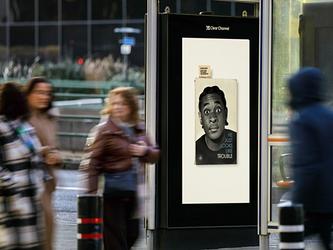‘You have to fit in to enter this world': racial inequality in research
In 2020, only 9% of ethnic minority people in our sector believed that everyone had the same opportunities regardless of race/ethnicity (MRS). This comes as no surprise when in 2019, of those earning £80,000 or more, 86% were white British and only 4% identified themselves as ‘BAME’ (Lightspeed).
Setting up the diversity and inclusion committee at Basis, we wanted to find out what was going on behind those numbers. We ran 20 depth interviews with people of colour across the industry – at Basis and other agencies, at varying levels of seniority, across consumer and social research. We recruited participants via snowballing and LinkedIn.
Through these interviews, it became clear that our industry must acknowledge the problem in the first place: that the inequality and discrimination in wider society is present and insidious in our workplaces.
Micro-aggressions are common. These take various forms, including:
- Racial/ethnic stereotypes – e.g. one participant whose co-workers expressed surprise that they weren’t the ‘Muslim wife’ they’d imagined
- Assumptions based on appearance/non-English name – e.g. co-workers and clients surprised that you can ‘speak well’
- Insensitivity and lack of awareness – e.g. being shamed for ‘not having moved out yet’, when from a culture with caring responsibility for extended family.
Some had experienced more explicit racism. A woman of Arab heritage recalled having to sit through a client talking about how Arabs in the Netherlands ‘don’t work, and live off the state’, while more senior, white, male co-workers stayed silent. A black researcher told me about having her hair touched at work: ‘It marks me out as different. […] I’m not an animal in the zoo.’
Others had experienced or witnessed being blocked from work opportunities, with a sense or knowledge that race played a role. One researcher had been switched for a white moderator, as the client worried she ‘wouldn’t have the cultural insight’. A few seniors felt they had to try harder to get people of colour promoted; that concerns were raised about their abilities that they didn’t encounter when advocating for white co-workers.
Experiences like these contribute to a sense of not belonging, but more widely, this feeling stems from the simple fact of being minority ethnic in a majority white environment. It starts from the moment you walk into an agency: ‘I felt horrible going in. No one looked like me.’ And doesn’t go away with time: ‘I’ve felt like an outsider […] like I’m less complete, in a way.’
Against this sense of not belonging, people of colour in this industry reported feeling the need to adapt to fit in. Several explained this through the frame of ‘worlds’:
- ‘I feel like it’s two worlds. You have to fit in to enter this world.’
- ‘When people come from the same place, it manifests in their way of being and talking – it’s a different world.’
This ‘world’ is specifically white and middle-class and people of colour can lack the cultural capital to fit in.
All of these things together – the microaggressions, the explicit racism, the feeling of not belonging, of having to adapt to belong, and yet not always feeling like you can – take a mental and emotional toll on people of colour. One researcher described it as ‘gravity, making you fall’.
For many, these things in turn can make them conscious of how they’re perceived in the workplace and whether they are ‘good enough’: ‘Will my work be scrutinised more? Will I have to prove myself more?’ And of being seen as a token hire: ‘I didn’t want people to think I got the job but didn’t deserve it.’
It’s difficult to call out racism as there are fears of repercussions: ‘Everyone’s really nice but it’s nice because I’m not raising anything. That would make my life difficult.’ And fear of negative perceptions: ‘I just bite my tongue. I don’t want to be seen as aggressive.’
For several participants, these fears had proven true. One researcher was ‘labelled rude, obnoxious and a troublemaker’ for raising diversity and inclusion issues; another had queried a gender and ethnicity pay gap confidentially, only to overhear someone outside of that conversation saying it’d been in ‘bad taste’ for her to do so.
These fears extend to talking about race at all: ‘I’m scared of rocking the boat’; ‘I’m always tiptoeing around it.’ Again, several had had these fears realised: ‘Whenever we talk about putting more diverse agencies on the roster, it’s like the air gets sucked out of the room.’
Still, there were mixed feelings among the people I spoke to as to whether they wanted to talk about race at work at all. While hopeful about change, they felt pressure, as people of colour in un-diverse workplaces, to take action – and frustrated that this responsibility falls to them almost by default.
Because of these mixed emotions, some opt out: ‘I’ve got to the point where I don’t say anything. […] I don’t want the pressure.’ For those who do get involved in inclusion initiatives, it’s a heavy responsibility, involving mental and emotional effort. One participant said: ‘I don’t want to do this – it’s not fun, but I know no one else is going to.’
I’d like to thank everyone who gave their time to speak with me and share their sometimes painful experiences. I wish I could have built the sample to capture the specific experiences of different ethnicities: ‘BAME’ isn’t one homogeneous group. Still, there are commonalities in the experiences of people of colour in our industry, at least among this sample:
- The experience of micro-aggressions and for some, explicit racism resulting in loss of opportunities
- A sense of not belonging and of needing to adapt to the white middle-class world that insight represents
- Heightened consciousness of how they’re perceived, as people of colour specifically
- Fears about raising experiences of racism or talking about race at all – fears that had proven true for several
- Mixed feelings about participating in inclusion initiatives: while hopeful about change, there’s pressure to act and frustration that the onus is on ’us’
- Heavy responsibility and devotion of time and effort for those who do get involved.
There was a sense of resignation that some things can only change with more diversity. But beyond this, three principles for fostering inclusion through initiatives emerged through comments gathered in the research:
1. Make it a priority
‘Don’t just tick the box. If it really matters, you need to put time and money behind it.’
Make sure diversity and inclusion don’t fall by the wayside. Where needed, bring in external resource and specialists.
2. Involve everyone
‘It needs to be a shared responsibility.’
Everyone has a responsibility to understand the issues and do their bit. For people of colour, speaking about race can provoke fear and working on inclusion can be an emotional burden, so support and allyship are important. Equally, don’t assume that people of colour want to get involved.
3. Involve senior leadership in particular
‘If you don’t have senior support, you’re always going to feel like a thorn in their side.’
Seniors set the tone of the agency; they can make inclusion a priority and involve everyone.
The first step is to acknowledge that our industry isn’t always inclusive for people of colour. I hope that this piece can play a small part in prompting awareness and conversations, and encourage people to share it with their agencies, clients, suppliers, and across the insight sector more widely.
Zoe Liu is associate director, cultural insight at Basis Research

We hope you enjoyed this article.
Research Live is published by MRS.
The Market Research Society (MRS) exists to promote and protect the research sector, showcasing how research delivers impact for businesses and government.
Members of MRS enjoy many benefits including tailoured policy guidance, discounts on training and conferences, and access to member-only content.
For example, there's an archive of winning case studies from over a decade of MRS Awards.
Find out more about the benefits of joining MRS here.













1 Comment
Petra
5 years ago
This is really valuable insight Zoe, thank you. As you mention, it is easy for us to assume that we're an inclusive industry based just on simple counts; but that hides the kinds of discrimination that white people with 'English' names just don't experience. I really do hope this research sparks some soul-searching and importantly, meaningful changes.
Like Reply Report